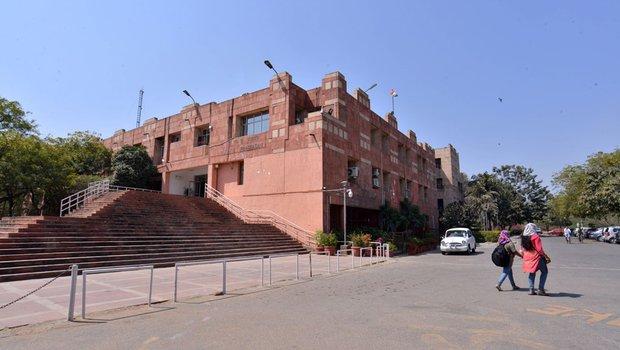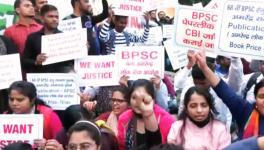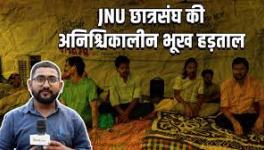Amid Nearing Deadlines, JNU Students and Teachers Brave Poor Internet Connectivity

File Photo
Ranjan (name changed) returned to his village in Murshidabad in West Bengal after classes were suspended in Jawaharlal Nehru University prior to the nationwide lockdown. Classes had begun just a month before the lockdown after a long agitation against the fee hike and the bloody violence on January 5.
He remained hopeful of completing his course work and beginning with research but the pandemic brought everything to a halt. Faced with the unprecedented crisis, the university directed students like him to attend online classes. The only problem he now faces is the lack of internet in ‘Digital India’. The poor connectivity has hit students like him because it not only limits their access to classes, but also to research material accessed through e-libraries like JSTOR.
“I live in a village which has internet and electricity issues. My village does not have a single mobile tower in its vicinity. It tried to access my classes online but one can hardly connect to them. This is seriously hampering my research work,” said Ranjan.
Anagha Pradeep, another student from the Center for Political Studies mentioned having issues as well. “Some students are able to access the classes but some are not. One of our teachers is recording his class on audio and sending it to his students. Now there is certainly a difference between attending a live class and listening to audio. You cannot clarify your doubts. There is no discussion,” she added.
JNU is currently home to approximately 8,800 students. Out of this number, 63% come from five states. There are 1,896 students from Uttar Pradesh, 1,515 from Bihar, 917 from Delhi, 617 from Rajasthan, and 603 from West Bengal. Many students maintain that they will not be able to complete their syllabus in this situation. However, the JNU administration is yet to notify an extension of the academic calendar. The university has left its centres and schools to complete the syllabus and conduct the examinations online or offline, or using a combination of both.
Ranjan said that there is “no point in conducting examinations by whatever means, if the syllabus is not covered.” He added that the syllabus was not entirely taught in the previous semester either, mentioning that even if examinations are conducted for students of Masters courses, research scholars still need to complete their course work.
“I guess the university should seriously consider extending the calendar to compensate for lost time. Anyway, it’s just not a matter of JNU. Scholars across the country are suffering. I think the University Grants Commission (UGC) should think about it,” he said.
After getting the cold shoulder, the Jawaharlal Nehru University Students Union (JNUSU) has written to the University Grants Commission to issue guidelines for the university. In its plea, it said: “It is to be noted in this regard that despite being a residential campus, failing reasonable assurances on part of the JNU Administration regarding the provision of food and healthcare within the University, most students were forced to engage in unnecessary travel on their part and travel back to their respective houses. As such, if classes and indeed exams were indeed to be held via online means, it would simply be impossible for many students to engage with their academic responsibilities.”
The students body mentioned that it was “particular importance to JNU” since according to the JNU’s annual reports, students from rural households made up 45%, 44%, and 44% of the total incoming population for academic years 2016-17, 2017-18 and 2018-19 respectively.
And it is not only students who have objected to classes and examinations happening online. Ranjan’s teacher at the Center for Study of the Regional Development said that “students complained to me about connectivity. So I sent them some material through email. So far, I have received only four replies. We had a meeting at our Center and decided that the best way to ensure completion of academic activities would be to extend the calendar by reducing the tenure of summer vacations.”
D.K. Lobiyal, a Professor at the School of Computer and System Sciences, has been teaching students at JNU for more than two decades. He suggested that online learning may not be suitable for students. “Teaching needs to be understood from the teachers’ perspective too, it involves psychology. When we teach students, we observe their gestures. If some students are facing difficulties, their issues can be resolved. With online teaching, we miss out on observation entirely. Secondly, online teaching is often coupled with teaching material which is self explanatory. For this, one needs to prepare their teaching material from scratch. In this time of a pandemic and on such short notice, it cannot be prepared,” he told NewsClick.
Get the latest reports & analysis with people's perspective on Protests, movements & deep analytical videos, discussions of the current affairs in your Telegram app. Subscribe to NewsClick's Telegram channel & get Real-Time updates on stories, as they get published on our website.
























